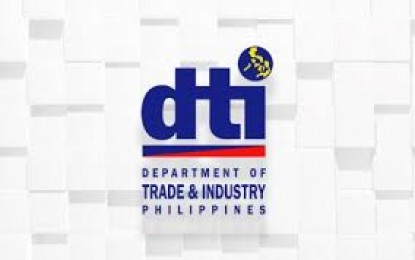
MANILA – The Department of Trade and Industry (DTI) welcomes the enactment of Republic Act 11697, otherwise known as the Electric Vehicle Industry Development Act (EVIDA), which provides for a national policy framework to develop the electric vehicle industry in the Philippines.
DTI Secretary Ramon Lopez expressed his gratitude to President Rodrigo Duterte and the lawmakers for the passage of this “very significant” legislation.
“With EVIDA, the Philippines is now in a stronger position to further attract hi-tech investments and create high-value jobs in the country by taking advantage of the ongoing global shift to EVs through strong national policy support,” he said in a statement Sunday.
Lopez also considers this measure a move towards lessening direct usage of oil products in transport thus, signifying reducing air and noise pollution in urban areas.
This will also reduce the transportation sector’s direct dependence on oil, especially amidst rising fuel prices affecting both businesses and consumers, he said.
EVIDA aims to promote innovation in the field of clean energy and sustainable transportation while developing a sunrise industry in the country and generating more employment.
It sets clear policy directions for the government to raise EV awareness, streamline regulations, boost local demand that should attract EV production, and build a robust EV charging infrastructure.
The law also mandates the crafting of a Comprehensive Roadmap for the Electric Vehicle Industry (CREVI), which will be a national development plan for the EV industry to accelerate the development, commercialization, and utilization of EVs.
EVIDA will also serve as a blueprint for a comprehensive and coordinated policy direction among national government agencies in terms of promoting EV to ensure investors’ confidence and attract EV-related investments.
As provided by the law, the Board of Investments (BOI) is tasked to craft an Electric Vehicle Incentive Strategy (EVIS) similar to the Comprehensive Automotive Resurgence Strategy Program (CARS Program) which shall provide fiscal and non-fiscal incentives to narrow the production cost gap between EVs and traditional vehicles and achieve local EV production targets by 2030.
DTI Competitiveness and Innovation Group Undersecretary Rafaelita Aldaba highlighted the importance of EVIDA for the Philippines amidst the rising competition in Asean to attract EV manufacturing investments.
“The EVIS will allow the government to provide competitive and industry-specific fiscal and non-fiscal support to attract private sector investments in strategic EV segments, especially manufacturing, which is a crucial step in deepening our participation in the regional automotive value chain,” she said.
EVIDA is among DTI’s priority legislative agenda for the 18th Congress. This, together with the passage of other economic bills supported by DTI, will strengthen the Philippine government’s efforts to accelerate industrial recovery and enhance the country’s national competitiveness. (PR)
